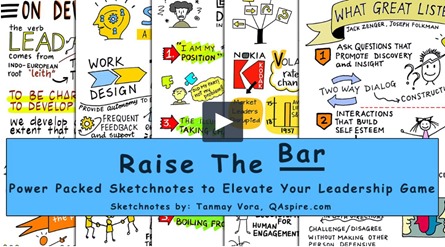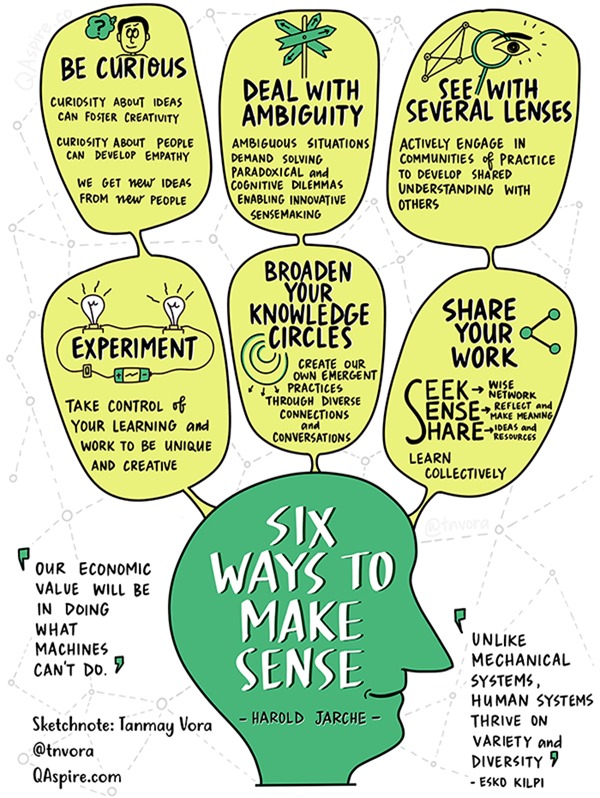Dealing With Complexity: Six Ways to Make Sense
Tanmay Vora
Increased complexity is a result of invisible dynamic forces, unanticipated events like pandemic and rapid adoption of disruptive technologies. Making sense of all this to align yourself for a better contribution requires much more than just consuming what you come across.
Sensemaking in a complex world requires us to adopt an attitude of active exploration, relentless experimentation, sound judgment and seamless collaboration with the outside world.
To make sense amidst uncertainty, we need to step out of our usual circle of the known and interact with communities that can expose us to new insights, new perspectives and challenge our thinking.
In my recent post on Self-Directed Learning, I wrote:
What we often lack is not the resources to learn, but an intent to learn. The discipline to pursue learning in a structured way. The openness to look “beyond the syllabus” and identify topics that truly resonate with us. The courage to put ourselves out there to learn with others virtually. The motive force of execution in bringing our learning to the service of others.
Harold Jarche recently summarized six key practices of sensemaking in a complex world, which I found very useful. I invite you to check out the amazing insights on Harold Jarche’s blog and here’s a sketchnote summary of the key practices.
If you wish to see more insights on the “Seek > Sense > Share” model, please refer to this sketchnote I created on the topic “The Best Leaders are Constant Learners” by Harold Jarche and Kenneth Mikkelsen.
Updated: Visual Leadership Pack of 55+ HD Sketchnotes
If you liked the sketchnotes above, you can find them in high-resolution compilation with 68+ other powerful (and timeless) ideas to elevate your game. Check out the Visual Leadership Pack of HD Sketchnotes here.

Also Read Related Posts at QAspire
- 20 Questions to Enable Lifelong Learning
- 8 Key Lessons Learned on Being Social (Offline and Online)
- Social Media for Better Leadership and Learning
- Taking Charge of YOUR Learning
- Mental Habits that Support Lifelong Learning
